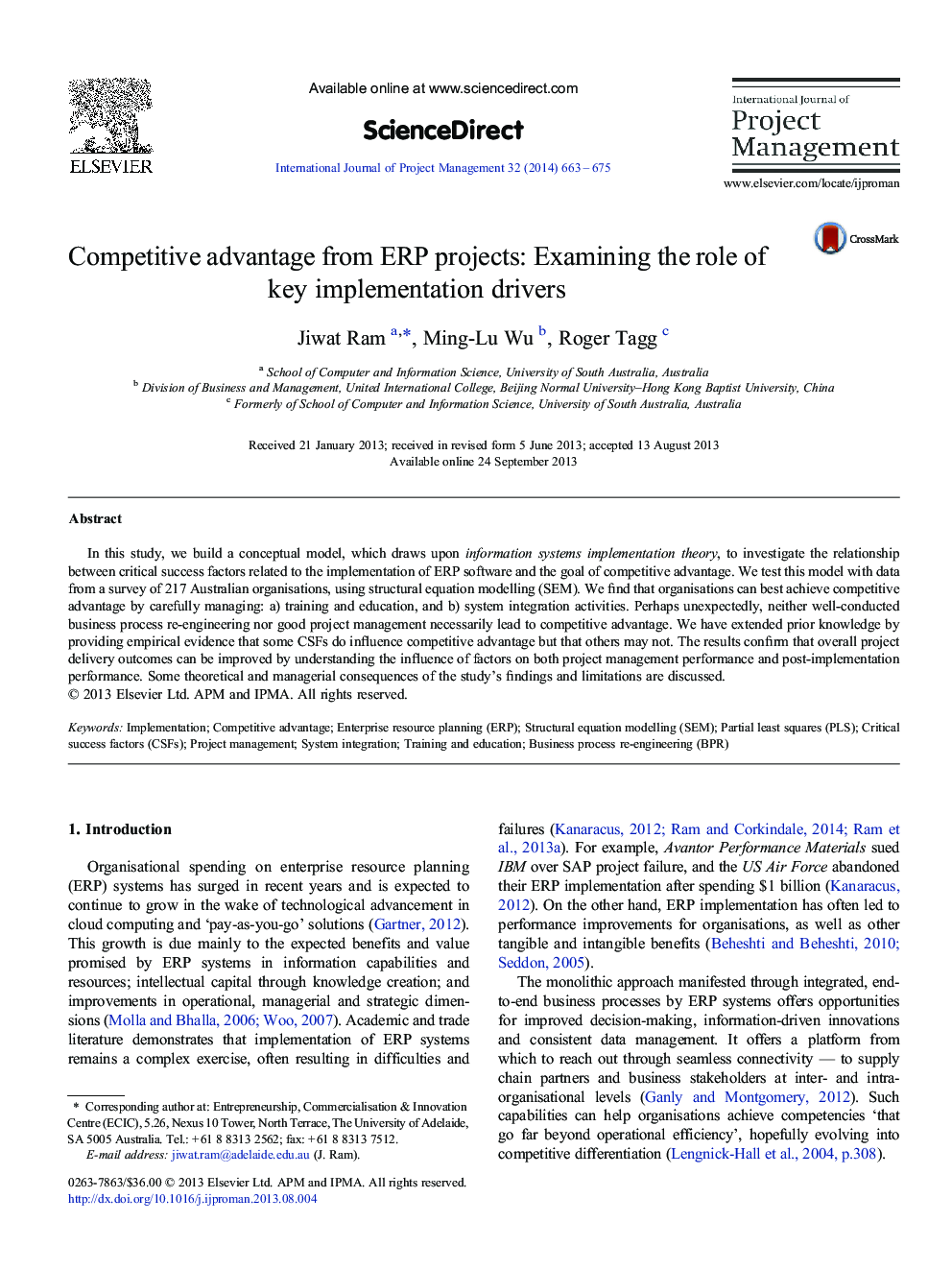| Article ID | Journal | Published Year | Pages | File Type |
|---|---|---|---|---|
| 275863 | International Journal of Project Management | 2014 | 13 Pages |
•Examined influence of implementation CSFs in deriving competitive advantage (CADV).•Effective training & education and system integration were found to lead to CADV.•Neither bus. process re-engineering nor project management necessarily leads to CADV.•Some CSFs influence project management performance and others longer-term outcomes.•Some CSFs have multiple influences in deriving both implementation outcome and CADV.
In this study, we build a conceptual model, which draws upon information systems implementation theory, to investigate the relationship between critical success factors related to the implementation of ERP software and the goal of competitive advantage. We test this model with data from a survey of 217 Australian organisations, using structural equation modelling (SEM). We find that organisations can best achieve competitive advantage by carefully managing: a) training and education, and b) system integration activities. Perhaps unexpectedly, neither well-conducted business process re-engineering nor good project management necessarily lead to competitive advantage. We have extended prior knowledge by providing empirical evidence that some CSFs do influence competitive advantage but that others may not. The results confirm that overall project delivery outcomes can be improved by understanding the influence of factors on both project management performance and post-implementation performance. Some theoretical and managerial consequences of the study's findings and limitations are discussed.
